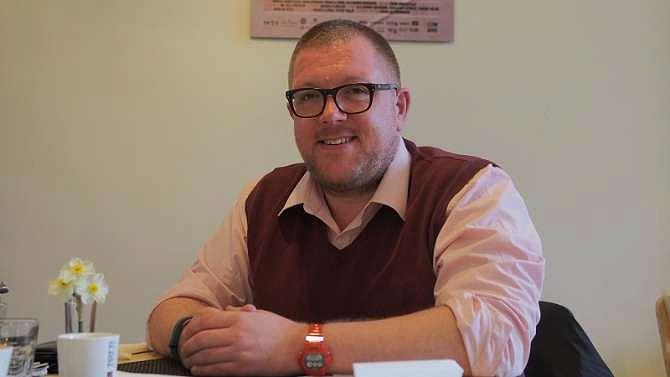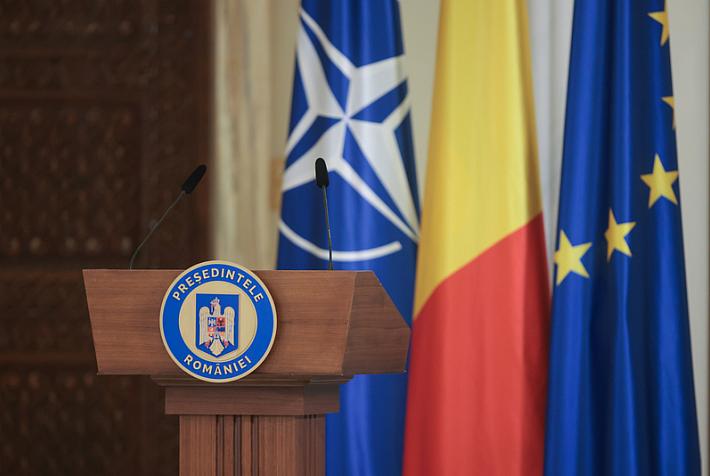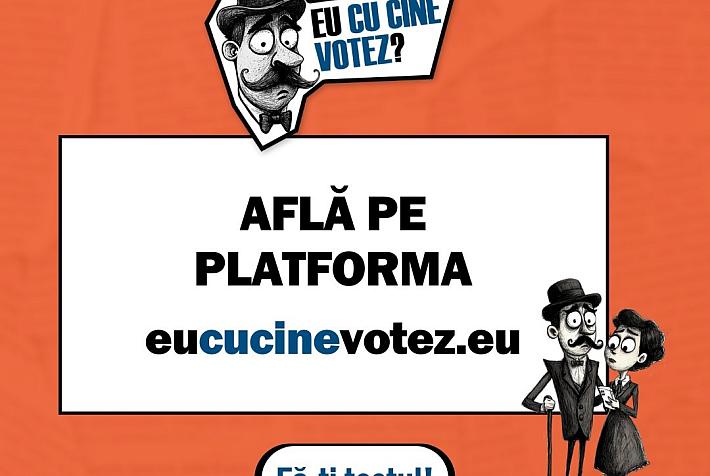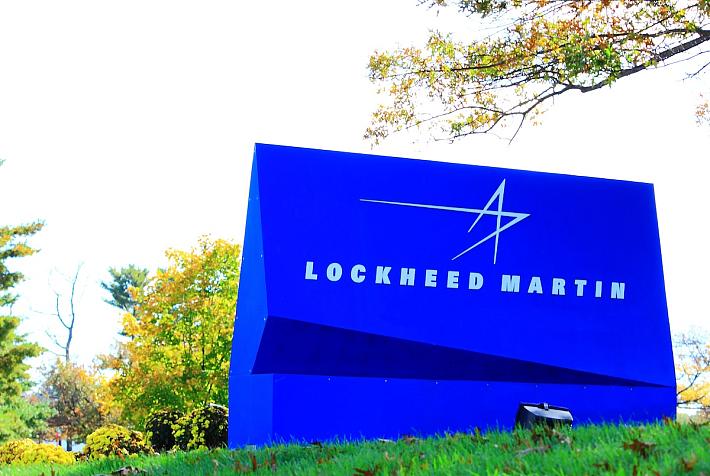A Scottish man finds his heart in Romania

During his teen years, John Robert McKellar thought he’d be an actor. A volunteering program in Romania changed his plans.
The gray plastic bracelet John Robert McKellar wears on his left wrist is of no use today. Normally it measures the 10,000 steps he makes every day, but the weather today is simply not his friend. The heavy rain makes Bucharest seem like Perth, the small city in Scotland where John was born. Luckily it’s Monday, and the weather is acceptable for the beginning of the week.
John, who is 37, takes a business card out of his wallet. It reads “Bridging the Gap”, the name of the NGO he co-founded in Romania. It’s a friendly card, with a small, colorful illustration. The charity tries to help other NGOs improve their fundraising and connect them to various businesses. It started as a sort of academy, organizing workshops.
John’s appearance is also friendly. He wears a light pink shirt with a cherry red vest on top and has a red wristwatch. He is now preparing the Cinco de Mayo Fundraising Fiesta, the NGO’s first annual fundraising. “The focus is not on promoting our charity. We are kind of flipping it,” John says. First come the fun part- the events, the dance, the tequila- because this is what attracts people, and then people can also learn about the NGO.
People or companies won’t simply like you, because you are a charity, John says. You need to offer something in exchange. “NGOs always complain, ‘they won’t give us money; why, why, why?’ and I ask them, what did you offer in return? And they answer that they don’t need to offer something back.”
John doesn’t talk from books. He knows how nonprofits work because he’s been through every stage. He first came to Romania when he was 20, with other 13 kids he grew up with. They volunteered in a school institution for teenage boys in western Romania. The experience was short, but John was hooked. He soon returned for a longer project and stayed for six months. He worked in a transit home, for kids over 18 who had to leave orphanages.
“There was a team of us that went there every day, to encourage the boys to go to school. We played sports with them, I taught them English, build up a little confidence in them, spent time with them.” He later returned to Romania, on a similar transit project in Cluj-Napoca. “It was now under my skin, completely.”
As John is telling his story, a robot voice from his phone interrupts him, “can’t find the network connection.” The world has massively changed from the first years when he came to Romania. He recently asked some old friends if they don’t miss the good old times when you’d be in a Dacia and then one of the wheels would fall off or you’d got arrested because you didn’t have your bulletin. “You’d get stopped by the police four times a day, and you’d say: I don’t understand, I don’t understand.” Romania was the old frontier, a huge adventure, especially for a 20- something young man.
When he later returned to Scotland to finish his studies, he stayed there for 8 years. But all the while he wanted to come back to Romania and work in the charity sector. He could have stayed there and get involved in a local NGO, but “my heart wasn’t there, my heart is here.”
He eventually went to the neighboring Republic of Moldova, as country manager for Hospice Angelus, a charity dealing with people with terminal diseases. He was responsible for the sustainability of the project in a country where fundraising was an alien concept. There was not much corporate involvement, so the best thing was to get the community involved. John discovered that there weren’t many things to do in Moldova, especially for young people. He thought that they could take advantage of that and organize fundraising activities, but make them fun. He heard many times that this won’t work in Moldova, but for him that was like a red cape to a bull. “I said, you tell us what won’t work, and we’ll make it work. It was the expats who first came on board, but in the end a lot of Moldavians came along.”
He likes that in Romania and Moldova young people care about the future of their country. John recalls the night when Klaus Iohannis was elected Romania’s president and people took to the streets. Such enthusiasm is hard to find in his own country, he says. The different values of this part of the world attracted him right from the beginning. “What I loved about working in Transylvania is that people were concerned about helping others and getting things done; such a simple way of life. People didn’t care about what cars they drove and they weren’t so materialistic. Of course this has changed, but young people are still passionate.”
He can connect to these values, because he shares them. While working in Moldova, the thing that motivated him wasn’t just making money for the organization. He knew that money would make a difference to the people’s lives.
As a teenager, John went to drama school and his dream was to be on stage. He went to same school as Ewan McGregor. He gave up that dream by the time he was 20, because school was too expensive. But he doesn’t regret trading a career in theater for one in the charity sector. “I get a lot more than being on stage, I can make a difference.”
John jokingly says that he always felt that he was following in Ewan’s footsteps. But with the new TV commercial where Ewan shows up and speaks in Romanian, John says that Ewan is now following in his footsteps.
John McKellar has started drawing up new plans. He launched the “Bridging the gap” project over one year ago, but now Romanians can take over, he says. “Bridging the gap is about sustainability and for us to be sustainable, we need to have somebody taking over.” He has several ideas and he wants to continue doing other things as well. “I’m not ready to stop yet.”
By Diana Mesesan, news & features writer, diana@romania-insider.com
(photo by Diana Mesesan)













